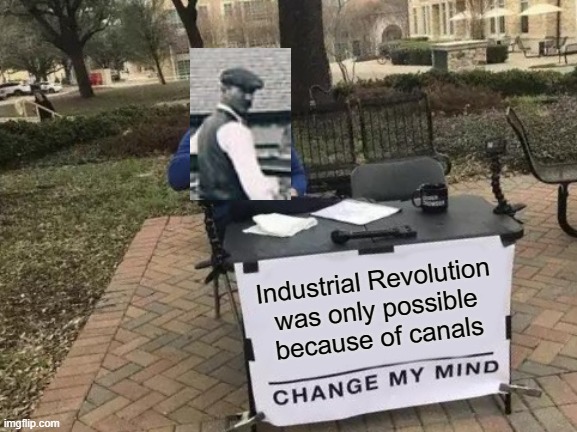Riverine trade and the extensive canal network of the UK were the oft-forgotten enablers of industrialisation back in the 18th century, and it makes me very happy that BoneyM acknowledges that. Railways often are touted as the drivers of industrialisation, rather than a consequence of it - steelworking on that scale and complexity requires existing infrastructure to already be in place, whereas improving the accessibility of rivers, dredging and canal digging can be done by a bunch of lads with shovels and gumption.
When the Black Lake/Aver canal is completed, bridging waterways across a mountain range akin to the Panama (far ahead of its time, thanks to the Dawi), the Empire might soon realise there's something to this whole canalisation business.

